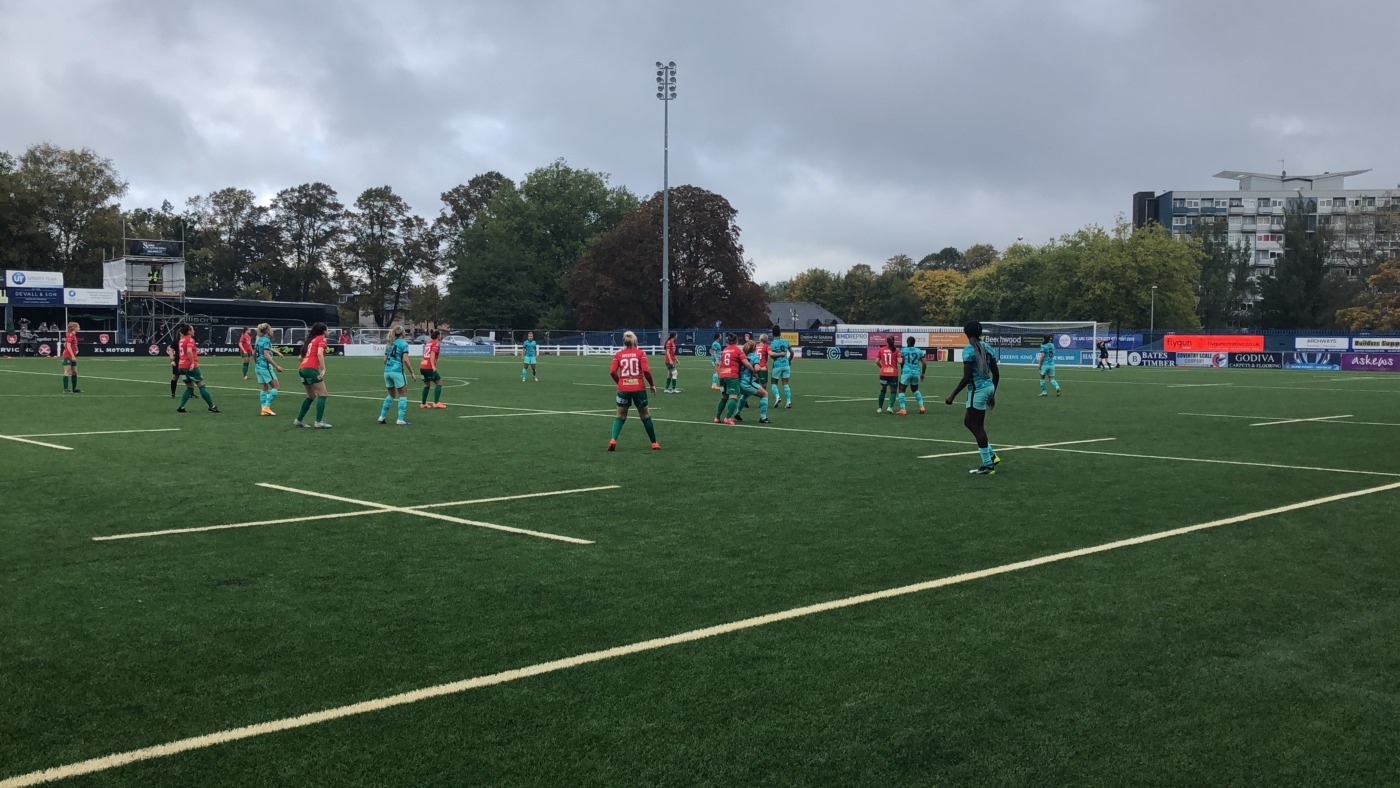Coventry United saved from liquidation
Christmas time: hope, joy, relaxation. Or that’s what you’d expect. The story for Coventry United LFC was anything but.
Coventry entered the Christmas break, customary in the women’s game, following an upturn in form and with the hope that they would be able to build on this in the new year. The team were initially touted as being a challenger for the title in the FA Women’s Championship (FAWC), and while they were well below expectations in December, things were looking hopeful.
The side’s troubles in gaining points had perhaps been understandable given the tumult of the summer transfer window. The club having established themselves in the FAWC for a couple of seasons, a company called the Mirius Group took a 49% share of the club in December 2020 and subsequently took CULFC professional in the summer.
This backing came with investment that saw the arrival of a number of established and talented players into the Coventry fold, including former FAWC top scorer Katie Wilkinson. With several other fresh faces in and the changes to becoming a professional club Coventry’s early struggles did not seem too problematic when contextualised. Their upturn in form with such a strong squad was certainly something to be excited about.
Yet they are now left burdened with a 10-point deduction under rules regarding insolvency provisions. How did things turn around so quickly for a team who looked so promising?
Just two days before Christmas, on 23 December, reports emerged that CULFC were to be put in liquidation and the contracts of staff and players terminated. This led to an understandable outcry within the women’s football community.
Both players from the club itself and those from elsewhere in the football pyramid took to social media to voice their frustration as to how a situation such as this became possible at such a high level in the women’s game.
Coventry’s goalkeeper, Olivia Clark, tweeted: “To come into work and to find out that you no longer have the job that you’ve always dreamed of is heart-breaking.”
Support from elsewhere was resounding with WSL defender Alex Greenwood tweeting: “The sacrifices these girls make to become professional footballers to be told halfway through a season you no longer have a job, or a club, is simply not good enough!!”
Whilst the women’s game grows it must be ensured that clubs are financially supported and safe
This outpouring resulted in a crowdfunding page being set up to help the players that raised over £15,000. Meanwhile MP for Coventry South, Zarah Sultana, wrote to the Secretary of State to call for a fan-led review of the women’s game.
Whilst solidarity and concern emerged from the football community, Lewis Taylor was also trying to do the ‘right thing’. At the 11th hour the liquidation was called off as Taylor pledged to clear debts and invest £200,000-£250,000 to enable the club to continue the season and compete.
As the chief executive of Energy Angels he has already shown support for the women’s game through the sponsorship of Wolves Women and his intervention at Coventry came just at the right time.
While Taylor remains confident of CULFC’s survival in the FAWC this season, they now have to contend with a 10-point deduction that sees them bottom by 11 points. There will also be potential worries that players have found alternative clubs with the situation so unstable over the festive period.
Coventry are likely to appeal the points deduction as it punishes a group with whom no fault lies whilst the Mirius Group escape seemingly unscathed. There is currently a petition which urges a reassessment of this punishment that currently condemns CULFC to a hard struggle for survival in the FAWC.
The occurrence also raises wider concerns over the health of the women’s game. How can a club that has so recently turned professional face such problems? How did they pass the FA’s ‘fit and proper checks’?
These are questions that most certainly demand answers in the near future. The FAWC Fans’ Collective has been set up in response to #ProtectWomensFootball and there’s hope this event will provoke a review to make sure this doesn’t happen again.
Yet the willingness to support a women’s club in the second tier appeared lacking throughout the trauma of the Christmas period. The Professional Footballer’s Association were unable to help the whole squad, only their own members, while the FA remained relatively silent through it all.
As the women’s game grows, it must be ensured that clubs are financially supported and safe. A precedent shouldn’t be set that requires women’s teams to have strong backing from a successful men’s club in order to compete.
While Coventry United Ladies faced a nightmare at Christmas, the football community must learn from these mistakes to ensure the ghost of Christmases future does not portray similar events. Sufficient support and infrastructure needs to be ensured for the healthy growth of the game.

Comments